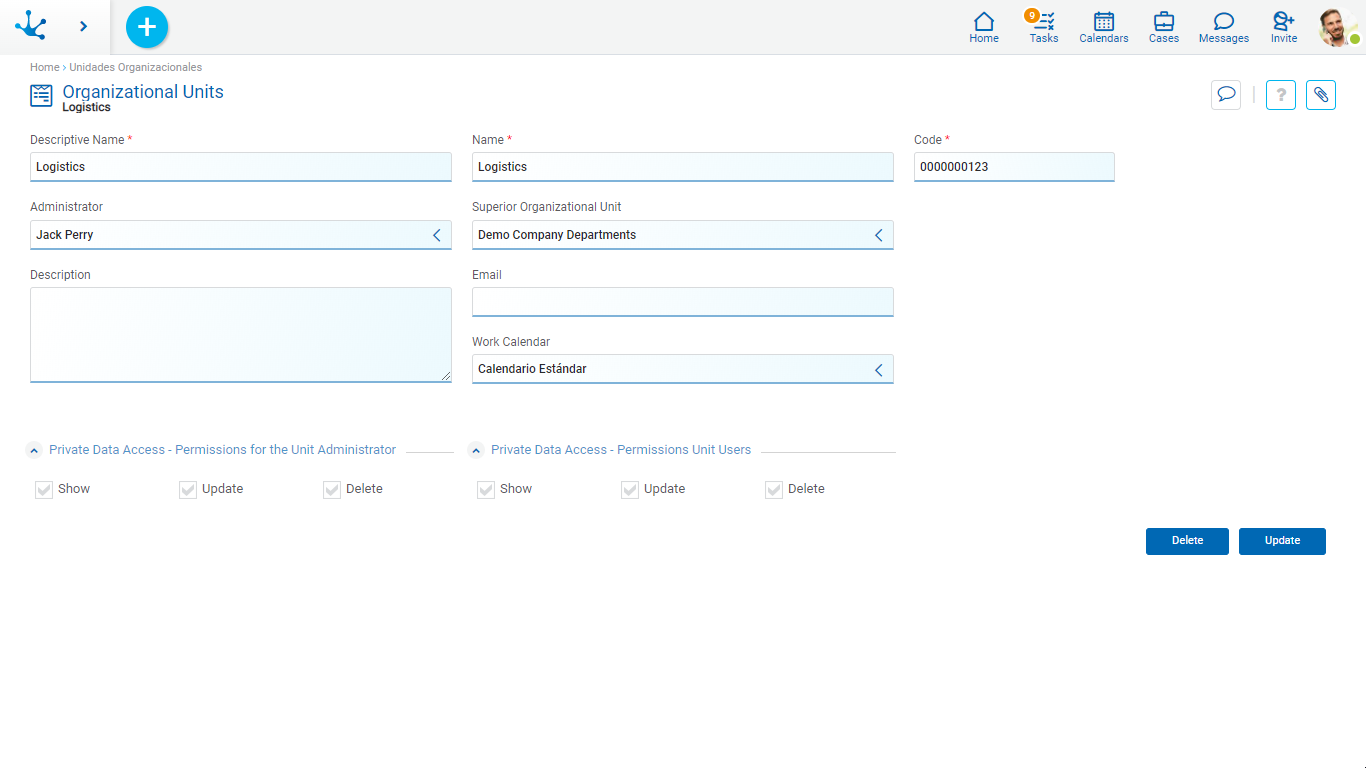Organization
 Phase 8: Configuration > Organization
Phase 8: Configuration > Organization
The organizational structure of Deyel defines the areas or the offices from the company and the relation of hierarchy between them.
Such areas or offices correspond to the organizational units that can be defined such as owner, initiator and participant when modeling a process.
When defining the users the organizational unit in which each one belongs must be indicated.

An asterisk “*" on the label indicates that the property is required.
Descriptive Name
Complete name of the organizational unit. This text is the one visualized in the organizational structure and as a grid column.
Name
It is an abbreviated or reduced name. It is used when referring to the unit in an error message or when there is the need to abbreviate the descriptive name. No blank spaces admitted. This name must be unique.
Code
Identification code of the organizational unit. This property is visible if the environment property Organizational unit coding type takes values “Manual” or “Semi Automatic”, while it is not visible if the value is “Automatic”.
Optionally an user that performs as coordinator or head of the unit can be indicated.
Superior Organizational Unit
Allows to identify the superior organizational unit inside the hierarchical structure.
Description
Property where the use of the organizational unit can be detailed so as to extend what is expressed in the Descriptive Name.
Email associated to the organizational unit.
Work Calendar
Allows to select the work calendar associated to the organizational unit. If a calendar is not defined for the organizational unit, Deyel uses the one of the closest higher-level unit with a defined calendar. The root unit of all the hierarchy has defined a calendar by default.
In the query of an organizational unit, when hovering over this property, a legend is displayed informing if the calendar is defined in the unit or in one of its superior units, or if it uses the default calendar.
Private Data Access - Permissions for the Unit Administrator
For the unit administrator, the access permits to the private data of their work teams are established.
Show
Can the unit administrator see the private data of their subordinates? (Yes/No)
Modify
Can the unit administrator modify the private data of their subordinates? (Yes/No)
Delete
Can the unit administrator delete the private data of their subordinates? (Yes/No)
Private Data Access - Permissions Unit Users
For a user that is part of the unit which establishes the access permits to private data of their colleagues.
Show
Can a unit user see the private data of their colleagues? (Yes/No)
Modify
Can a unit user modify the private data of their colleagues? (Yes/No)
Delete
Can a unit user delete the private data of their colleagues? (Yes/No)
